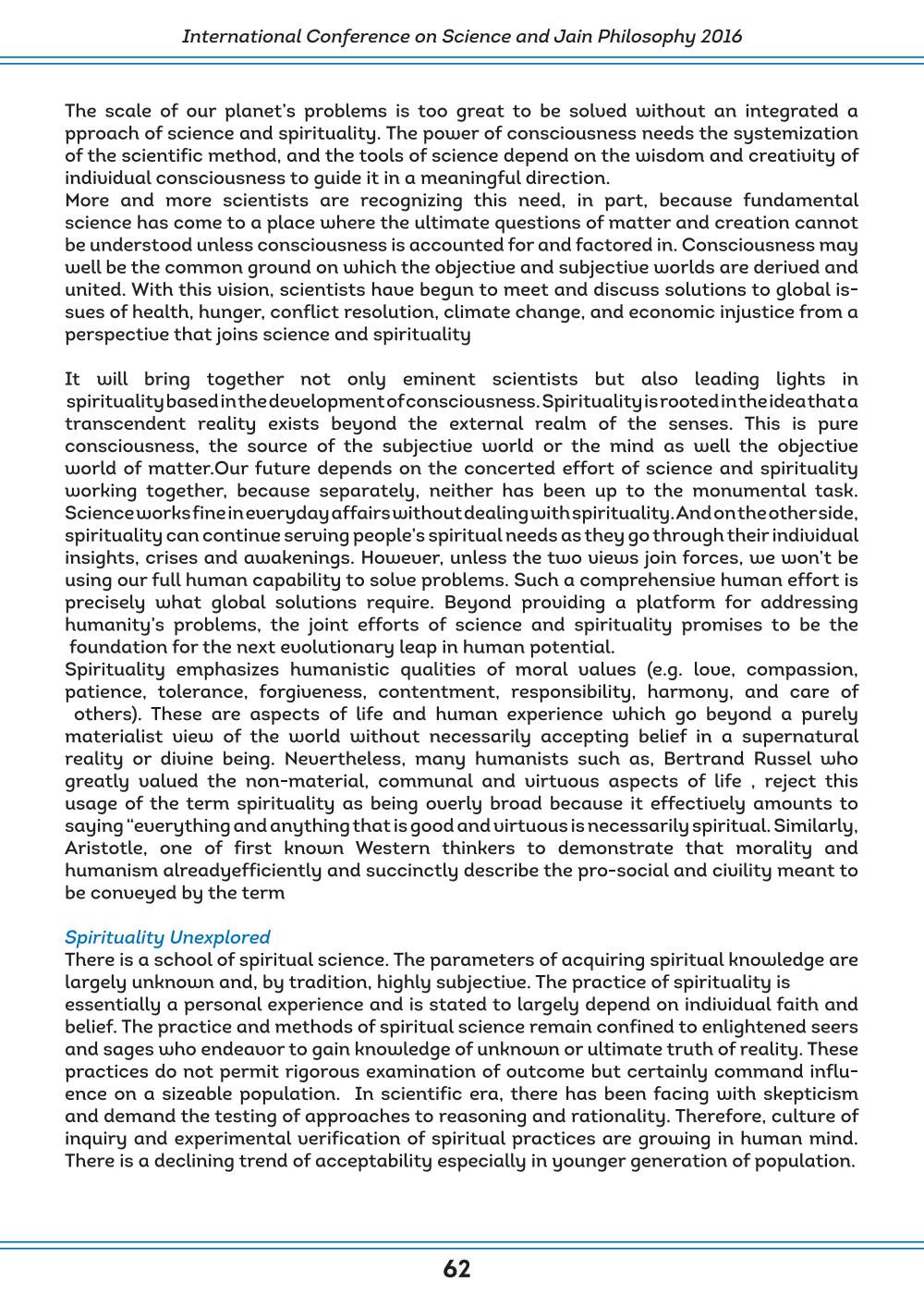________________
International Conference on Science and Jain Philosophy 2016
The scale of our planet's problems is too great to be solved without an integrated a pproach of science and spirituality. The power of consciousness needs the systemization of the scientific method, and the tools of science depend on the wisdom and creativity of individual consciousness to guide it in a meaningful direction. More and more scientists are recognizing this need, in part, because fundamental science has come to a place where the ultimate questions of matter and creation cannot be understood unless consciousness is accounted for and factored in. Consciousness may well be the common ground on which the objective and subjective worlds are derived and united. With this vision, scientists have begun to meet and discuss solutions to global issues of health, hunger, conflict resolution, climate change, and economic injustice from a perspective that joins science and spirituality
It will bring together not only eminent scientists but also leading lights in spirituality basedinthe development of consciousness. Spiritualityisrootedintheidea thata transcendent reality exists beyond the external realm of the senses. This is pure consciousness, the source of the subjective world or the mind as well the objective world of matter. Our future depends on the concerted effort of science and spirituality working together, because separately, neither has been up to the monumental task. Science works fine in everyday affairs without dealing with spirituality. Andonthe other side, spirituality can continue serving people's spiritual needs as they go through their individual insights, crises and awakenings. However, unless the two views join forces, we won't be using our full human capability to solve problems. Such a comprehensive human effort is precisely what global solutions require. Beyond providing a platform for addressing humanity's problems, the joint efforts of science and spirituality promises to be the foundation for the next evolutionary leap in human potential. Spirituality emphasizes humanistic qualities of moral values (e.g. love, compassion, patience, tolerance, forgiveness, contentment, responsibility, harmony, and care of
others). These are aspects of life and human experience which go beyond a purely materialist view of the world without necessarily accepting belief in a supernatural reality or divine being. Nevertheless, many humanists such as, Bertrand Russel who greatly valued the non-material, communal and virtuous aspects of life, reject this usage of the term spirituality as being overly broad because it effectively amounts to saying "everything and anything that is good and uirtuous is necessarily spiritual. Similarly, Aristotle, one of first known Western thinkers to demonstrate that morality and humanism alreadyefficiently and succinctly describe the pro-social and civility meant to be conveyed by the term
Spirituality Unexplored There is a school of spiritual science. The parameters of acquiring spiritual knowledge are largely unknown and, by tradition, highly subjective. The practice of spirituality is essentially a personal experience and is stated to largely depend on individual faith and belief. The practice and methods of spiritual science remain confined to enlightened seers and sages who endeavor to gain knowledge of unknown or ultimate truth of reality. These practices do not permit rigorous examination of outcome but certainly command influence on a sizeable population. In scientific era, there has been facing with skepticism and demand the testing of approaches to reasoning and rationality. Therefore, culture of inquiry and experimental verification of spiritual practices are growing in human mind. There is a declining trend of acceptability especially in younger generation of population.
62




